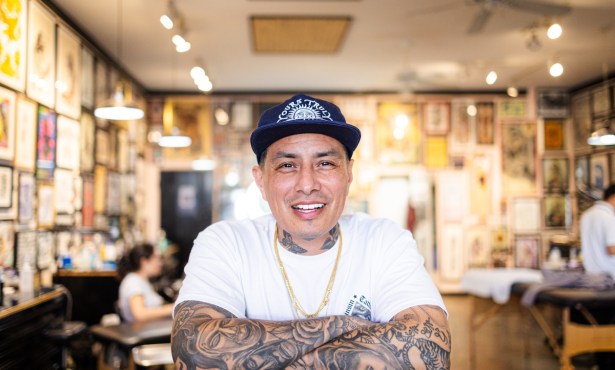News Commentary: Santa Barbara’s First One Hundred Days of Donald Trump
One Reporter’s Journey Through a Strange Land
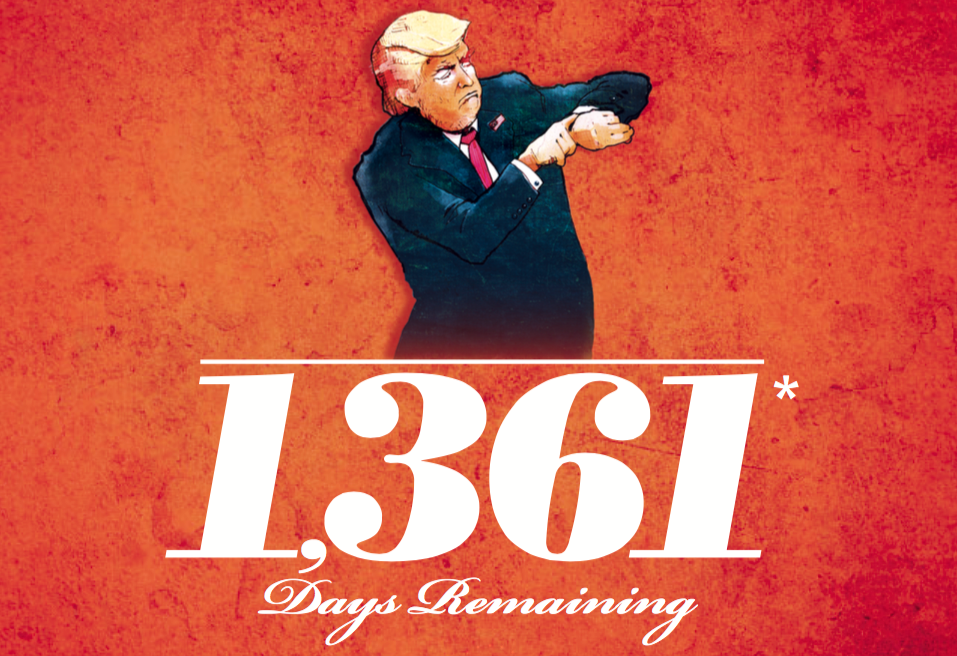
One hundred days ago, on a cold January morning, I was wandering around the Washington Mall, waiting for Donald J. Trump to be inaugurated as president of the United States. Small clutches of people draped in plastic smocks and red caps milled about the wet, muddy grass. Few, in the mostly white crowd, restrained their adoration of Trump. Everyone seemed thrilled the temperature was in the high 40s. I was freezing in my borrowed black parka and green wool gloves. Everyone else seemed to be from everywhere but California. I did not recognize them. They probably didn’t recognize me. I thought I had just landed on Pluto. They looked like they had just arrived home.
Most of the people in the crowd were men, some of whom acted as if I were privileged just to hear their thoughts. One guy from Texas spoke with such conviction I could barely get a word in. Progressives had attacked good Christian values, he said; they were taking his country in a direction he could not control.
As I made my way around, I wondered how these enthusiastic people justified the fact Trump had, on the campaign trail, slighted everyone from our Mexican neighbors to war heroes such as Senator John McCain to a Gold Star family. Most agreed they had reservations about such remarks, but they complained the media has blown them out of proportion.
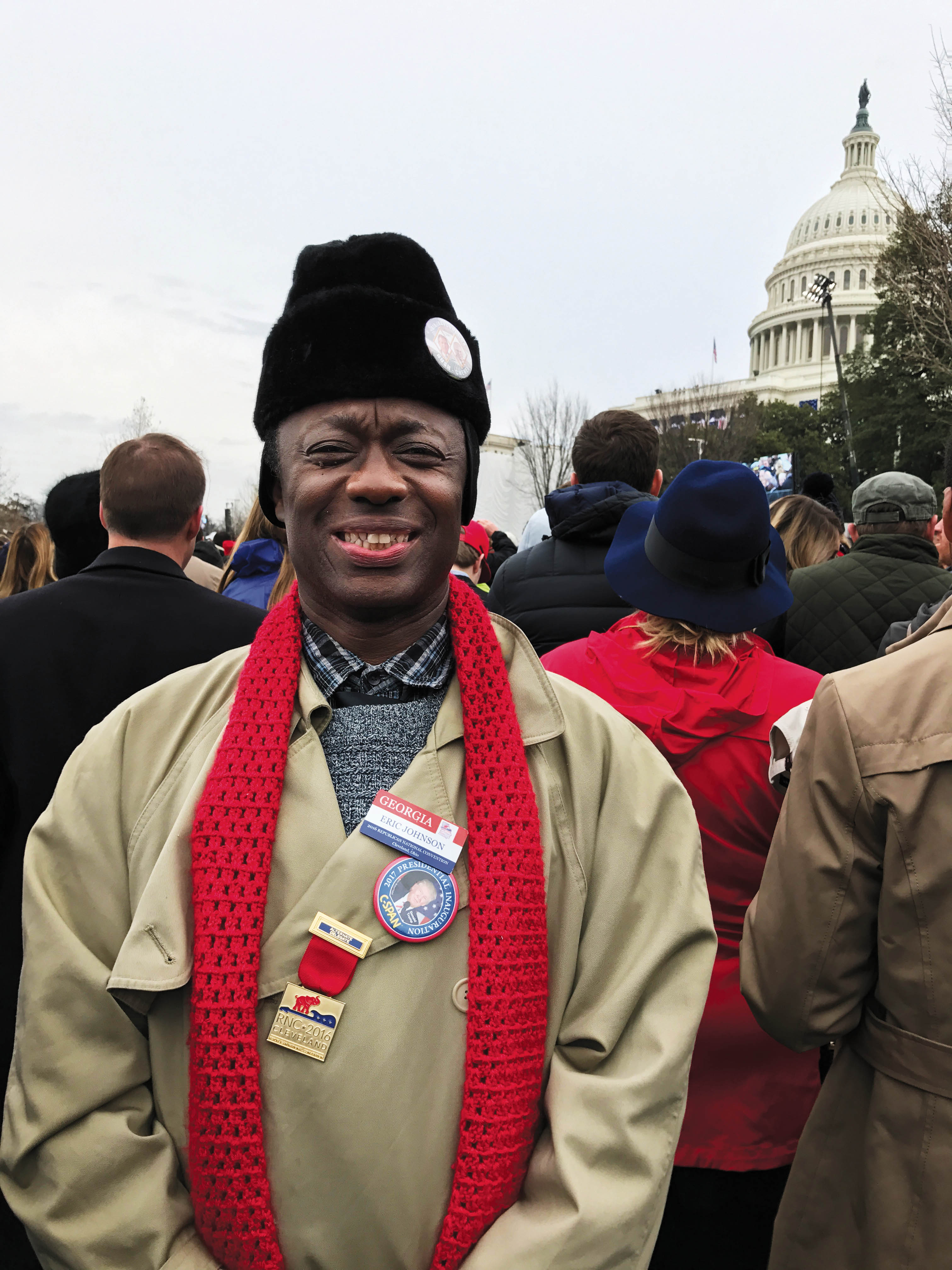
Well, I was media, I suppose — sent to D.C. to report on both the inauguration and the Women’s March on Washington. It’s a traditional trait for journalists to distance themselves from the events they cover, and in the four years I’ve worked as a reporter, I’ve learned to stand in the back of the room, always on the outside looking in. It’s not the usual social interaction, and one that has sometimes been a challenge for me since the recent presidential election.
June Gloom
When I began working at The Santa Barbara Independent, I was assigned to cover the crevices of Santa Barbara life, from immigration to sexual violence to criminal justice to school board meetings. At UCSB, I had studied the history of public policy. But I soon discovered it’s a lot more difficult to write about people who are alive and living in my own town — to be honest but not to have an anxiety attack the next time I run into them at the grocery store.
For those of us in our twenties, this is the first time we’ve experienced such an enormous political spectacle. Of course, we lived through the horrors of 9/11 and the Iraq War, but we were just kids. We didn’t experience the cultural earthquake those from the Vietnam generation did — at least until now. Perhaps the Trump phenomenon is our Vietnam. When Trump was declared the next United States president, on November 9, a fog seemed to descend over Santa Barbara, or at least its mostly liberal population. It was as if June Gloom started seven months early.
For the last 100 days, I’ve tried to make sense of that fog, talking politics with my friends and my parents and during the interviews I had while covering stories. Plenty of smart people are still trying to make sense of Trump’s ascension to power.
Perhaps the most knowledgeable person I spoke with was the renowned journalist Lou Cannon, who has covered national and state politics through many administrations, most notably for the Washington Post during Ronald Reagan’s administration. When I told him I was struggling to figure out something original to say about Trump’s first 100 days, he stopped me. That marker, he said, was an “artificial construct,” for any president, especially this one. “The first 50 days revealed how inexperienced he is and how much it is an amateur operation,” he said. “It didn’t take 100 days.”
Like Oil and Water
I grew up in a politically mixed family. My mom, a moderate liberal, was a high school guidance counselor. My dad is a conservative freelance artist. You don’t hear about many of those. He doesn’t fit into any pigeonhole. In his youth, he was a Vietnam War protester and a self-described JFK liberal. As he has gotten older, though, he has gotten more conservative.
As a kid most evenings, I talked about current events with my dad as we watched NBC news together. For a long time, I considered many of my dad’s beliefs gospel (not that I know much about the Gospel). But by the time I got to UCSB, my political point of view had changed. Our dinners together became battlegrounds — ideas polarized for the sake of debate. I became the Knee-Jerk Liberal, and he the Grumpy Conservative. My mom hated it. But deep down, I refused to accept my dad truly believed some of his points. I respected him so much.
For the past several months, however, I was afraid to ask him whom he voted for. When he confirmed it was Trump, I cringed. He said he found many of the things Trump said offensive but worried Hillary Clinton would “send the country down a leftward path it would never return from.” I really lost it when he used the phrase “progressive cultural hegemony.” Is he really worried political correctness would wipe out individualism and personal freedoms?
The truth is I don’t personally know many other Trump voters. Many of my friends in California grew up hating Republicans. I rarely told anyone my dad was a “Republican.” It sounded like a bad word. But I’ve come to realize my dad gave me a useful perspective. He has made me more empathetic and open to different viewpoints.
In Santa Barbara after the election, it became commonplace for many to ridicule Trump. It’s as if we forgot 56,000 people in the county voted for him. A giant blue truck parked on Anapamu Street last October was vandalized with white spray paint: “FUCK TRUMP.” Some passersby rejoiced. Fifth graders reported being bullied in school when they stuck up for Trump.
I’ve interviewed several Trump voters who said they are afraid to admit they voted for him. One Westmont student said he felt he was forced to take the Trump bumper sticker off the back of his truck after a middle-aged woman flipped him off on the freeway. As she sped past, he found it ironic she had a “Love Trumps Hate” sticker on the back of her car.
Trump’s election has made us all reexamine our personal set of values. In my social circles, I am surrounded by Bernie Sanders or Hillary Clinton fans. We can barely get through dinner without someone listing Trump’s latest outrage or citing some new resist hashtag like #DeleteUber. (During Trump’s Muslim travel ban in January, protesters called for taxi companies and Uber to boycott airports. Taxis supported the protests, but Uber sent their drivers and turned off “surge pricing.”) Frankly, I never understood why people expected Uber to be so socially conscious. Wasn’t it the one who treated their drivers as independent contractors, not as employees, and never shied from trying to override state safety laws? Why would leftists have ever downloaded the app in the first place?
In Santa Barbara, we tend to think we live in a liberal enclave of tolerance and safety. But it is a comfort blanket that doesn’t cover everyone. Last month, I attended a workshop where a group of Spanish-speaking women came to learn how to protect their families should immigration agents suddenly arrest them. One woman said more people wanted to come but were afraid the meeting was a federal government trap. Some worried their children would be left on the side of the road if they were pulled over in a traffic stop. Mothers pored over forms, adding a second name to their bank accounts, applying for dual citizenship for their children, and developing a plan to care for their older relatives. I realized how oblivious I was to such fears.
Later, I learned that 5-year-olds in Carpinteria were playing a hide-and-seek-type game called La Migra, Spanish for immigration law enforcement. Though there are no confirmed reports of immigration authorities rounding people up and shipping them to detention centers, fear is more powerful than truth.
In Santa Barbara, elected leaders have sought not only to calm these fears but also to speak truthfully about what policy changes may impact lives — which ones Trump will enforce and which ones will be funded. It is difficult for officials to figure out what is the best way to handle these new policies — threatened or real.
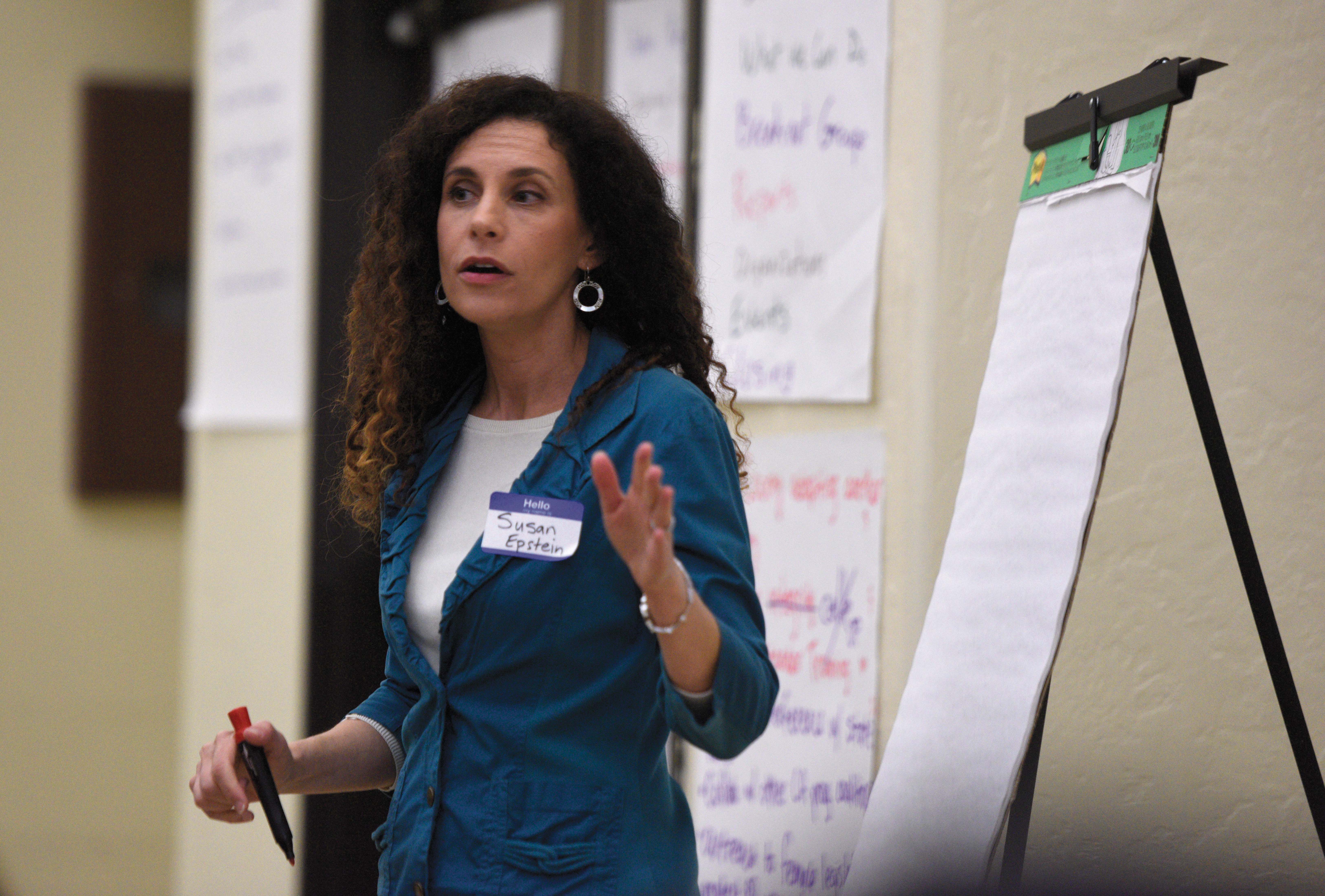
When 1st District Supervisor Das Williams said that after the election he felt more ideological than ever, I could not help but feel some hesitation. What does that mean for projects that need federal funding, such as the Highway 101 widening? And that’s just the roads. Santa Barbara County receives a total of about $240 million from the federal government every year. Congressmember Salud Carbajal has spoken out against a number of proposed policies affecting immigration and off-shore oil drilling. President Trump has a reputation for petty and vindictive actions. If Santa Barbara announced it would become a sanctuary city, would it draw unnecessary attention to the most vulnerable? Some shake this notion off, saying the Trump administration is so inept it might take them more than four years to figure it all out. But is that a little too cavalier?
This really hit home for me when I was covering the extent to which the Santa Barbara County Sheriff’s Office cooperated with agents from ICE (Immigration and Customs Enforcement). For some time, immigrant activists hammered Sheriff Bill Brown for allowing ICE agents unfettered access into his jail to search databases and interview foreign-born inmates convicted of what ICE called violent crimes. But despite this history of a good working relationship with local ICE agents, Santa Barbara County suddenly showed up on a White House–requested list issued by Homeland Security, citing the county as being uncooperative and “potentially endangering Americans.”
Even some ICE agents didn’t understand what was going on. The Trump administration finally stopped issuing these lists, but to me it highlighted a major disconnect between the Trump administration and government agencies carrying out laws that have been in place for years.
The Lucky Failure
Even though recent polls show Trump’s approval rating continuing to drop, especially among independent voters, conservatives see him as making good on his promises.
While the media is highlighting one botched Trump initiative after another — the repeal of the Affordable Care Act, broadened immigration policies, the Muslim travel ban — Republicans realize the confirmation of Judge Neil Gorsuch to the Supreme Court will greatly outlast any other failures and mistakes of the Trump administration.
In fact, according to Cannon, the best thing for Trump was the failure of the Affordable Care Act (ACA) repeal. Sure, it cost him a healthy crop of negative press, he said, but he doesn’t have to deal with the “ire” of Trump voters who obtained health insurance through the ACA. “If you voted for somebody and you lose your coverage, that will affect you,” he said. “All politics is retail.”
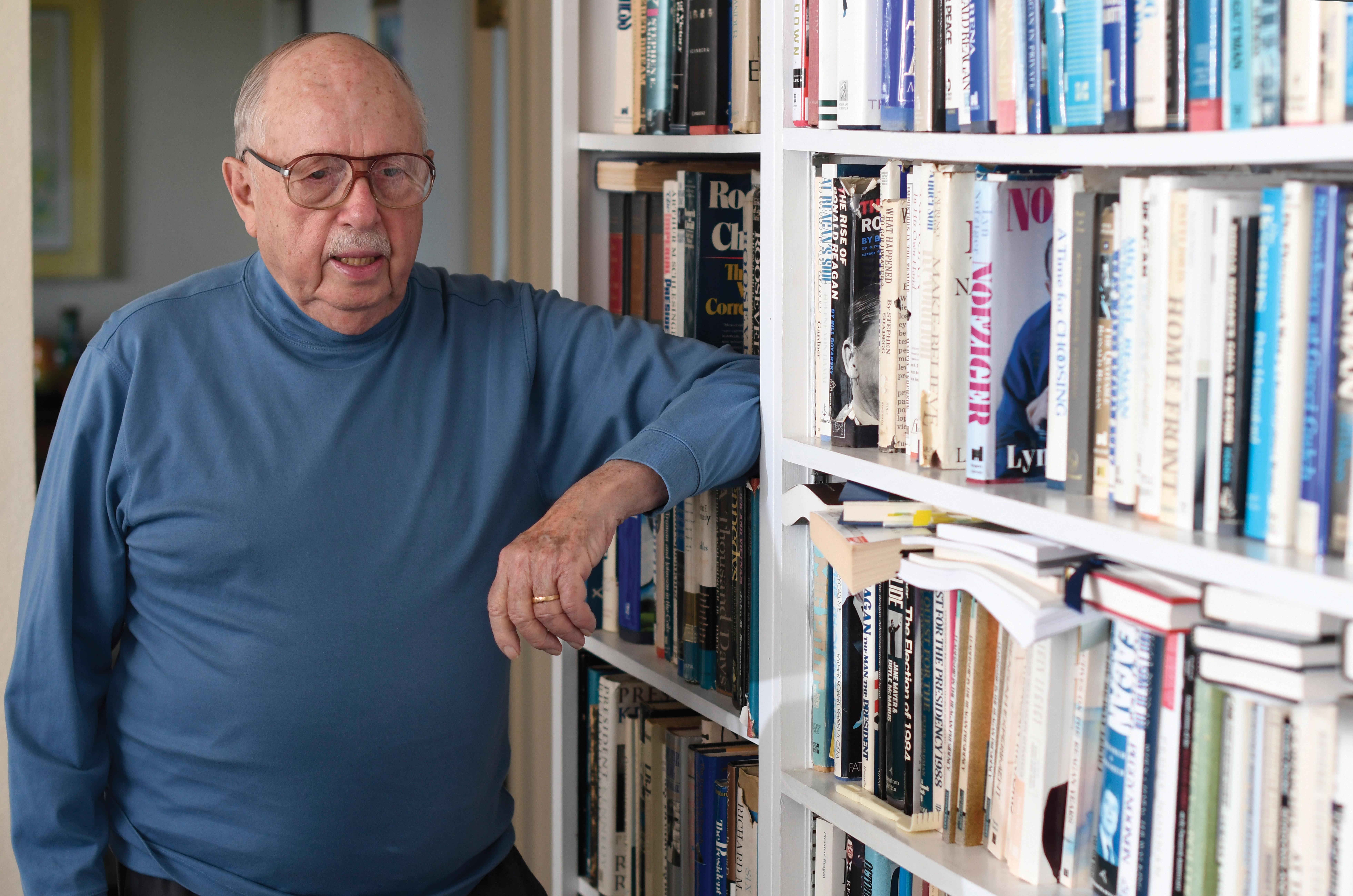
The bungled repeal attempt also demonstrated members of Congress do not feel they owe Trump anything, he added, for the politicians who finished ahead of Trump in their districts might be less inclined to support his bills. To contrast, President Reagan ran ahead in almost every congressional district, he said, even carrying a number of Democratic districts. “It was no coincidence those were the Democrats who voted for his tax bill,” he said.
So far, Cannon gives Trump a C-. “But I’m grading him from the presumption he wasn’t going to do a lot of things he said he was going to do, because he didn’t know how to do them,” he said. “He hasn’t held political office. He doesn’t read. He believed his own rhetoric. … At some point, if he doesn’t start moving on the tax issue, [congressional leadership] will. Can he cobble together some kind of half-assed way out on health care before that happens? I don’t know the answer to that.”
What Now?
We’ve all had moments crystalizing the notion we are in a new era. For me, it was after the Women’s March on Washington. The energy that day felt like a giant Zumba class, but the lingering spirit was zapped out of me that night. As I sat at Off the Record, a hip bar in D.C., an elegant woman drinking champagne grew irritated after the bartender refused to change the channel to Fox News. She got up and walked out in a tizzy. Taken aback, the bartender told me Republican politicians come through all the time, but no one has ever had such a problem with CNN.
It’s easy to look at history and say the pendulum swings; the Republicans and Democrats take turns wielding power. But will the progressive gains during the last 50 years withstand the next four years (or eight)? So one key question is this: Does the new movement of opposition have staying power? And in Santa Barbara, are we confining ourselves to an echo chamber where well-intended progressives are just preaching to the choir?
Good Grief
One progressive activist told me liberals, here in Santa Barbara and across the country, have been going through the six stages of grief — shock, denial, anger, bargaining, depression, and finally acceptance. He thinks that eventually they will have to accept the loss. But Santa Barbara doesn’t seem quite ready.
About two months ago, on March 2, writer and activist Gloria Steinem spoke at the Arlington Theatre. I was struck by how light-heartened and uplifted she still was. At 83, she’s seen worse. It made me wonder if progressive forces will be able to launch a successful counter-campaign — to mitigate climate change, fight poverty, strengthen civil rights, preserve social welfare nets and women’s rights, and try to stay out of World War III.
So in 100 days, I’ve gone from Pluto to Santa Barbara, living a journey of high emotions and downright confusion. I will continue to try to distill all the bureaucratic rhetoric, the bluster both here and in Washington, into as truthful a picture as possible. I’ve learned that no one has the one predictable answer: not Lou Cannon, not the protesters, certainly not my dad. We exist in unchartered territory, folks. But it is our territory, our world, as strange as it has become.



